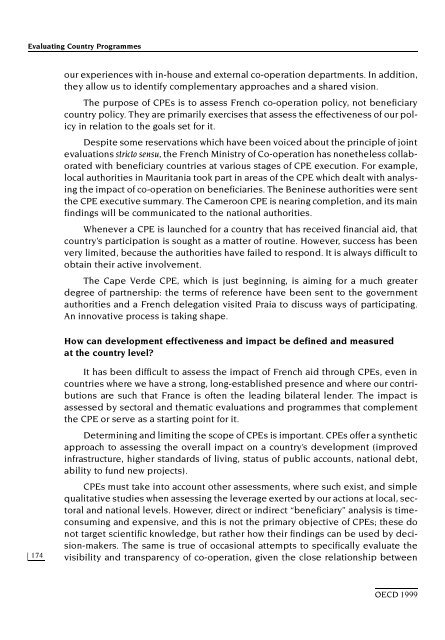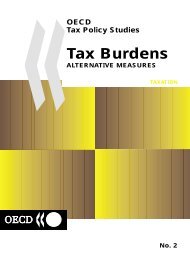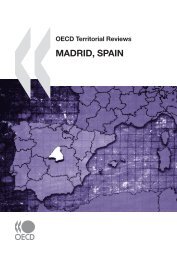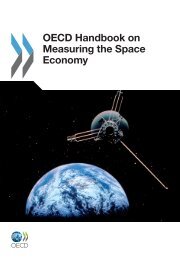Evaluating Country Programmes - OECD Online Bookshop
Evaluating Country Programmes - OECD Online Bookshop
Evaluating Country Programmes - OECD Online Bookshop
You also want an ePaper? Increase the reach of your titles
YUMPU automatically turns print PDFs into web optimized ePapers that Google loves.
<strong>Evaluating</strong> <strong>Country</strong> <strong>Programmes</strong><br />
174<br />
our experiences with in-house and external co-operation departments. In addition,<br />
they allow us to identify complementary approaches and a shared vision.<br />
The purpose of CPEs is to assess French co-operation policy, not beneficiary<br />
country policy. They are primarily exercises that assess the effectiveness of our policy<br />
in relation to the goals set for it.<br />
Despite some reservations which have been voiced about the principle of joint<br />
evaluations stricto sensu, the French Ministry of Co-operation has nonetheless collaborated<br />
with beneficiary countries at various stages of CPE execution. For example,<br />
local authorities in Mauritania took part in areas of the CPE which dealt with analysing<br />
the impact of co-operation on beneficiaries. The Beninese authorities were sent<br />
the CPE executive summary. The Cameroon CPE is nearing completion, and its main<br />
findings will be communicated to the national authorities.<br />
Whenever a CPE is launched for a country that has received financial aid, that<br />
country’s participation is sought as a matter of routine. However, success has been<br />
very limited, because the authorities have failed to respond. It is always difficult to<br />
obtain their active involvement.<br />
The Cape Verde CPE, which is just beginning, is aiming for a much greater<br />
degree of partnership: the terms of reference have been sent to the government<br />
authorities and a French delegation visited Praia to discuss ways of participating.<br />
An innovative process is taking shape.<br />
How can development effectiveness and impact be defined and measured<br />
at the country level?<br />
It has been difficult to assess the impact of French aid through CPEs, even in<br />
countries where we have a strong, long-established presence and where our contributions<br />
are such that France is often the leading bilateral lender. The impact is<br />
assessed by sectoral and thematic evaluations and programmes that complement<br />
the CPE or serve as a starting point for it.<br />
Determining and limiting the scope of CPEs is important. CPEs offer a synthetic<br />
approach to assessing the overall impact on a country’s development (improved<br />
infrastructure, higher standards of living, status of public accounts, national debt,<br />
ability to fund new projects).<br />
CPEs must take into account other assessments, where such exist, and simple<br />
qualitative studies when assessing the leverage exerted by our actions at local, sectoral<br />
and national levels. However, direct or indirect “beneficiary” analysis is timeconsuming<br />
and expensive, and this is not the primary objective of CPEs; these do<br />
not target scientific knowledge, but rather how their findings can be used by decision-makers.<br />
The same is true of occasional attempts to specifically evaluate the<br />
visibility and transparency of co-operation, given the close relationship between<br />
<strong>OECD</strong> 1999

















![CQE=U]^\]Z: KAZAKHSTAN - OECD Online Bookshop](https://img.yumpu.com/3915768/1/190x253/cqeuz-kazakhstan-oecd-online-bookshop.jpg?quality=85)